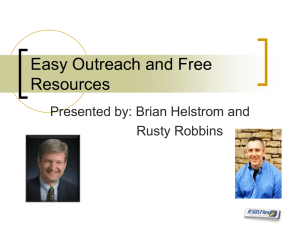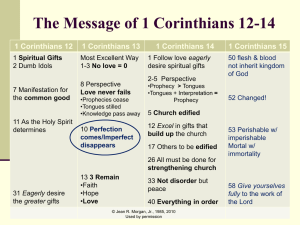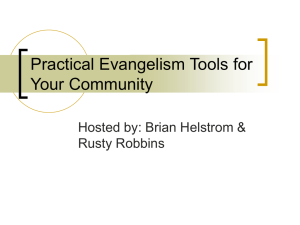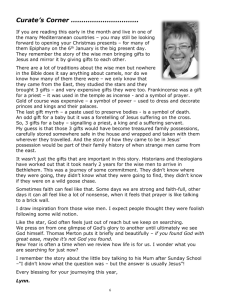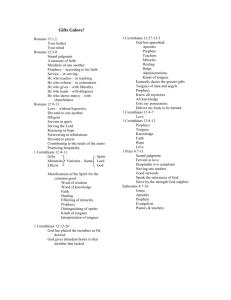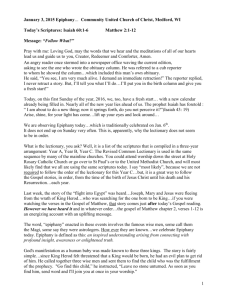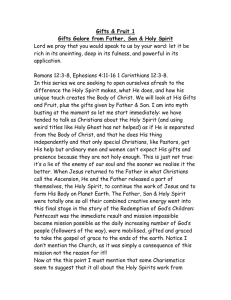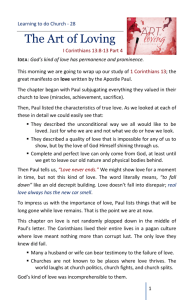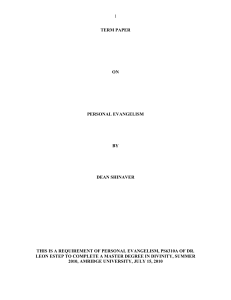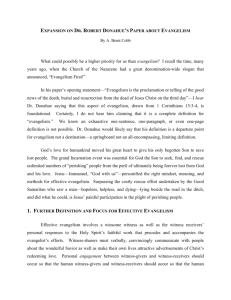Sermon Archive of The Most Rev
advertisement
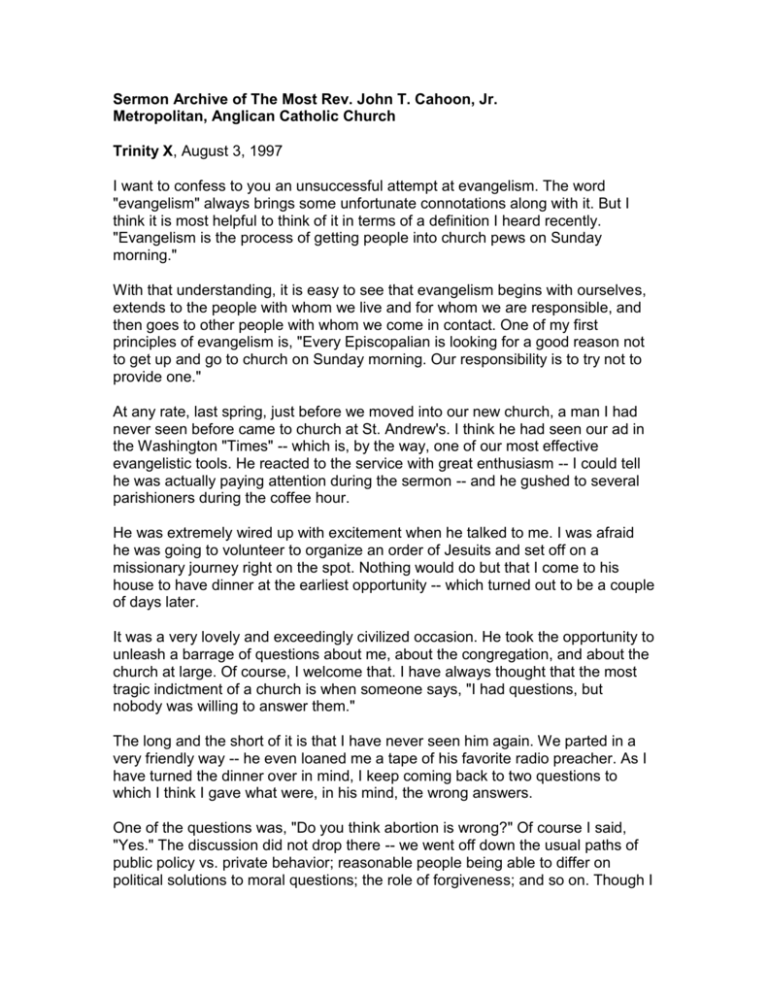
Sermon Archive of The Most Rev. John T. Cahoon, Jr. Metropolitan, Anglican Catholic Church Trinity X, August 3, 1997 I want to confess to you an unsuccessful attempt at evangelism. The word "evangelism" always brings some unfortunate connotations along with it. But I think it is most helpful to think of it in terms of a definition I heard recently. "Evangelism is the process of getting people into church pews on Sunday morning." With that understanding, it is easy to see that evangelism begins with ourselves, extends to the people with whom we live and for whom we are responsible, and then goes to other people with whom we come in contact. One of my first principles of evangelism is, "Every Episcopalian is looking for a good reason not to get up and go to church on Sunday morning. Our responsibility is to try not to provide one." At any rate, last spring, just before we moved into our new church, a man I had never seen before came to church at St. Andrew's. I think he had seen our ad in the Washington "Times" -- which is, by the way, one of our most effective evangelistic tools. He reacted to the service with great enthusiasm -- I could tell he was actually paying attention during the sermon -- and he gushed to several parishioners during the coffee hour. He was extremely wired up with excitement when he talked to me. I was afraid he was going to volunteer to organize an order of Jesuits and set off on a missionary journey right on the spot. Nothing would do but that I come to his house to have dinner at the earliest opportunity -- which turned out to be a couple of days later. It was a very lovely and exceedingly civilized occasion. He took the opportunity to unleash a barrage of questions about me, about the congregation, and about the church at large. Of course, I welcome that. I have always thought that the most tragic indictment of a church is when someone says, "I had questions, but nobody was willing to answer them." The long and the short of it is that I have never seen him again. We parted in a very friendly way -- he even loaned me a tape of his favorite radio preacher. As I have turned the dinner over in mind, I keep coming back to two questions to which I think I gave what were, in his mind, the wrong answers. One of the questions was, "Do you think abortion is wrong?" Of course I said, "Yes." The discussion did not drop there -- we went off down the usual paths of public policy vs. private behavior; reasonable people being able to differ on political solutions to moral questions; the role of forgiveness; and so on. Though I do wish he had come back to church, I don't wish I had said I thought abortion is not wrong. The answer I gave which I think shocked him even more was one which today's epistle brings up. He asked me, "Do you have people in your congregation who speak in tongues?" I said, "Yes," and when he seemed incredulous, I pointed out what St. Paul says to us this morning in the twelfth chapter of First Corinthians. Those of you who have studied either of the letters to Cornith know that the congregation there was extremely badly behaved. Factions were struggling with each other, people were coming to church drunk, members were hauling one another into court, and the worship services were completely chaotic -- any Anglican would have found plenty of reason not to show up. St. Paul was trying to get the Corinthians to take a different sort of look at the church, and at what being part of the church meant. He said that the church is not just a random collection of individuals, the church is a body -- a body like a human body. When a human body is healthy, all of its parts are working together for the good of the whole. In the same way, God gives every member of the church -- each individual Christian -- things to do which benefit everyone else -- gifts they are supposed to use for the benefit of those around them. When everyone is concentrating on using his gifts and trying to be of help to others, it minimizes the focus on ego and power-hunger and resentment that ruins so much of life. Many of us go through life and never realize that the things we do -- especially the ones which help other people -- are all gifts from God. They are part of the legacy Jesus left for the church, no matter how mundane and every-day they may seem to us. But God -- complicated fellow that he is -- also sends weird and spectacular gifts to some people. Some people seem to know the right thing to say in difficult situations. Others have an unfailing gift for speaking the truth or discerning what is right. Some seem to be able to hang on to Jesus in faith when there seems to be no earthly reason to do so. Others can heal bodies and spirits. Some can speak to God in unintelligible languages -- and others can make them intelligible. If God gives you the more spectacular gifts, don't forget that they exist to help encourage others, not to make you proud of how holy you are. The bigger point is that God works in the lives of everybody who is baptized to give us gifts which build up the body of Christ. St. Paul says that you can't even say that Jesus is your Lord without the Holy Ghost working in you. Do we have people who speak in tongues? Surely. But what keeps us alive is when we show the world the best gifts -- faith, hope, and charity. The Collect: Let thy merciful ears, O Lord, be open to the prayers of thy humble servants; and, that they may obtain their petitions, make them to ask such things as shall please thee; through Jesus Christ our Lord. Amen. The Epistle: I Corinthians 12: 1-12 The Gospel: St. Luke 19: 41-46
